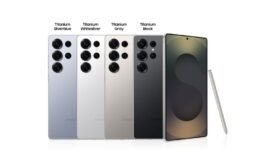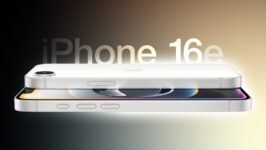iPhone vs Android: A Comprehensive Comparison

When it comes to smartphones, two names dominate the market: iPhone and Android. Both have their loyal fan bases and unique features, making it difficult to determine which one is better. In this comprehensive comparison, we will explore the strengths and weaknesses of both platforms to help you make an informed decision.
Operating System
The most significant difference between iPhone and Android is the operating system. iPhone uses iOS, which is known for its sleek and user-friendly interface. Android, on the other hand, offers a more customizable experience with its open-source platform. It allows users to personalize their devices and access a wide range of apps from the Google Play Store.
Hardware
When it comes to hardware, both iPhone and Android devices offer top-of-the-line specifications. However, iPhone devices are known for their premium build quality and attention to detail. The latest iPhone 15 Pro Max boasts a stunning design, powerful processor, and impressive camera capabilities.
On the other hand, Android devices, such as the Samsung Galaxy S24, offer a wider range of options to choose from. Whether you prefer a sleek and compact device or a larger screen for multimedia consumption, Android has a device to suit your needs.
App Ecosystem
One of the main advantages of iPhone is its App Store. With over 2 million apps available, it offers a vast selection of high-quality applications. Developers often prioritize iOS when releasing new apps, ensuring that iPhone users have access to the latest and greatest.
Android, however, has the advantage of the Google Play Store, which boasts even more apps. While some may argue that the quality of apps on Android is not as consistent as iOS, the sheer quantity and variety of apps available make up for it.
Security and Privacy
When it comes to security and privacy, iPhone has a reputation for being more secure. iOS is known for its strict app review process, which helps prevent malicious apps from entering the App Store. Additionally, Apple’s commitment to user privacy is evident in features such as Face ID and end-to-end encryption.
Android, on the other hand, has made significant strides in improving security over the years. With regular security updates and features like Google Play Protect, Android devices are becoming more secure. However, the open nature of the platform still leaves room for potential vulnerabilities.
Integration with Other Devices
If you are already invested in the Apple ecosystem with devices like MacBooks, iPads, and Apple Watches, then an iPhone would seamlessly integrate with your existing devices. The ability to sync your data and easily switch between devices is a significant advantage.
Android, on the other hand, offers more flexibility in terms of integration with other devices. Whether it’s connecting to a Windows PC or using a wide range of smart home devices, Android provides a more open ecosystem.
Price
Price is often a crucial factor when deciding between iPhone and Android. iPhones tend to be more expensive, especially the flagship models. However, Apple does offer more affordable options like the iPhone SE, making it accessible to a wider audience.
Android, on the other hand, offers a wide range of devices at various price points. From budget-friendly options to high-end flagship models, Android provides more options for those on a tight budget.
Conclusion
Ultimately, the choice between iPhone and Android comes down to personal preference and priorities. If you value a user-friendly interface, a secure ecosystem, and seamless integration with other Apple devices, then an iPhone may be the right choice for you.
On the other hand, if you prefer a more customizable experience, a wider range of device options, and a more affordable price range, then Android is the way to go.
Remember, both iPhone and Android have their strengths and weaknesses, and what matters most is finding a device that suits your needs and preferences.




